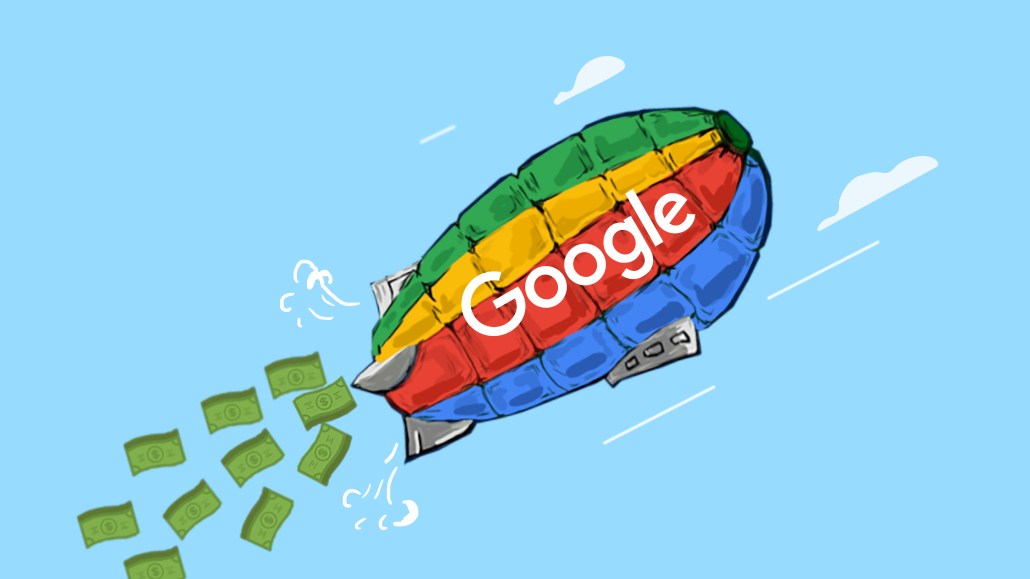Secure your place at the Digiday Media Buying Summit in Nashville, March 2-4
Google launches My Ad Center as ‘Trust in digital experiences has declined’

Google is rolling out My Ad Center, a portal it hopes will attract users to sign in and indicate preferences for the types of ads they want to see across its Discover, Search, YouTube, and network properties.
First unveiled at its Developer I/O conference, My Ad Center effectively replaces Google’s ‘About this ad’ feature but promises users even further control over the type of ads they’ll see, and from which brands.
Jerry Dischler, vp and general manager of ads at Google, wrote, “You’ll also be able to block sensitive ads and learn more about the information used to personalize your ad experience … You will never have to spend time searching for the right control or decoding how your information is used.”
So, how does it work?
Since My Ad Center was first previewed in May, Google has revealed further details on how it operates, such as how it lets users tailor “sensitive” ads, including those from alcohol, dating, gambling, parenting/pregnancy, or weight gain/loss brands. Alternatively, they can turn off all forms of personalization whereas in the past personalization tools such as a YouTube viewer’s history were automatically used to inform how ads served to them were personalized.
“Now, if you don’t want your YouTube history to be used for ads personalization, you can turn it off in My Ad Center, without impacting relevant recommendations in your feed,” added Dischler in a blog post.
The service, which will roll out beginning this week, also gives users further insights into the criteria behind why they are being served — as well as the identity of the companies behind — the spots they see. That said, some of the sub-controls will not be available to third-party apps and websites.
So, why this, and why now?
In discussion with journalists, Karin Hennessy, lead product manager, user privacy & trust at Google, presented findings from a 2022 Boston Consulting Group survey, commissioned by the online advertising giant, that indicated how 81% of respondents were “concerned” with how companies access their data.
“Folks’ trust in their digital experiences has declined, and in many cases, people are concerned about how their information is being used by companies in those products and services, in some cases it is causing users to turn away,” she said.
She went on to describe “a tension” between what consumers want from online products, including how they want to better preserve their privacy while still receiving personalized online services — Hennessy revealed that some 260 million users use the My Google Activity service.
Hennessy also noted how such features were being introduced as part of Google’s attempts to prepare for the full sunsetting of traditional ad-tracking tools and trackers. “That’s really a big part of the shift away from third-party cookies and the elimination of cross-site tracking support that is coming for our ads products and browsers at large,” she added.
Those accessing My Ad Center can also turn their preference both on and off, with Google planning a promotional campaign for the service consisting of a “content strategy to make it a little less mysterious… and in the language of the average user.”
Consequences?
Speaking about the launch of My Ad Center controls, such as the ability to block ad serving from alcohol and gambling brands, Ruben Schreurs, chief product officer at Ebiquity, noted how its rollout could have a financial impact on Google.
“Google needs to follow through and show their commitment on this but it’s also a really dangerous area for them to go to,” he said. “They don’t break down their [advertiser] sector revenues but betting and gambling [brands] are huge [spenders] in digital display and video.”
Schreurs concluded: “If the user control of this module is so good, then everyone could turn everything off, and it’s a dangerous game for Google.”
More in Media

From feeds to streets: How mega influencer Haley Baylee is diversifying beyond platform algorithms
Kalil is partnering with LinkNYC to take her social media content into the real world and the streets of NYC.

‘A brand trip’: How the creator economy showed up at this year’s Super Bowl
Super Bowl 2026 had more on-the-ground brand activations and creator participation than ever, showcasing how it’s become a massive IRL moment for the creator economy.

Media Briefing: Turning scraped content into paid assets — Amazon and Microsoft build AI marketplaces
Amazon plans an AI content marketplace to join Microsoft’s efforts and pay publishers — but it relies on AI com stop scraping for free.





